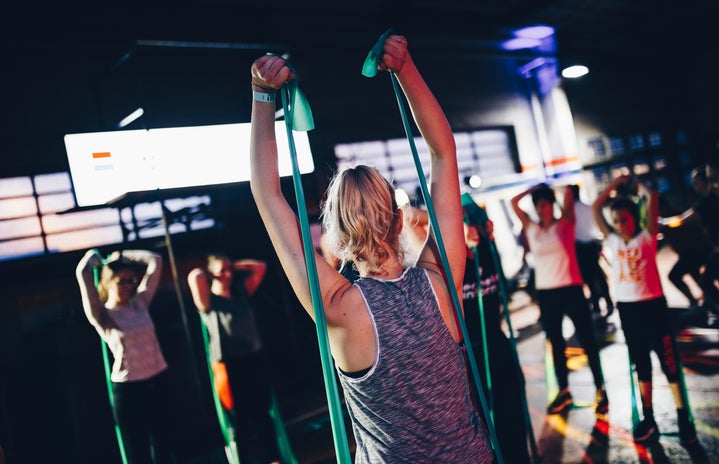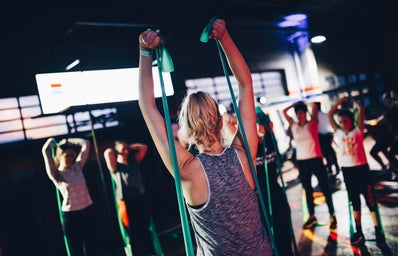Sarah Barron and Themis Karavellas are proud representatives of the newest and toughest addition to the University of Nottingham’s Sports Clubs – the Powerlifting team!
An individual strength sport, consisting of three attempts at maximal weight on three lifts: squat, bench press, and deadlift. You can’t blame someone else for an eventual failure, or wonder whether you’re making progress or not – you either succeed or you don’t!
However although everyone walks into the gym with their own goals in mind, mutual trainings make them walk out as one supportive and united squad. Apart from the powerful team spirit, Sarah and Themis’ dedication and consistency have brought them to competitions such as the British University Championships and GBPF Junior Nationals earlier this year.
What sparked your interest in powerlifting?
Sarah: Originally I trained for aesthetic reasons and competed in the UK Bodybuilding and Fitness Federation. Although I loved the bodybuilding style of training, the nutritional side wasn’t sustainable in my everyday life. I didn’t want to give up lifting for good, so I set myself a new challenge – lifting heavier, getting stronger and putting on a bit more muscle mass, without the added pressure of constantly dieting!
Themis: I became interested in general strength training while serving in the army, as I wanted to feel more empowered. I was already focusing on the big 3 lifts (squat, bench press, deadlift), so powerlifting was a natural transition.
How do your parents and close friends accept the idea of you doing a commonly stereotyped male sport?
Sarah: In contrast to even 5 years ago, weightlifting for females is becoming increasingly popularised and even fashionable in media – which is great! I have such supportive friends and family who understand my motives, and I’m now the happiest and healthiest I’ve ever been! Of course, I still get insensitive comments, but I remind myself that this is probably due to ignorance of the sport and lifestyle.
What do you think are the biggest common misconceptions about powerlifting today?
Themis: Every pop-culture sport, including ours, carries a caricature image of itself. I think the typical one is of socially awkward guys who may be on steroids lifting to heavy metal music. There’s nothing wrong with that, but that image now represents a niche. Membership in the sport has been growing exponentially over the past 5-10 years, people at competitions and gyms are friendly and humble, most athletes compete drug-tested and at least a third of UK powerlifters are female.
How do you prepare for competitions?
Sarah: Preparing for a competition is just as much of a mental challenge as a physical one. I have to be 100% focused on getting my training, sleep, nutrition and recovery right, otherwise my performance will lack on the big day. This may mean I have less time for social events, so for me, scheduling time for mediation is especially important to reduce my stress levels.
How has powerlifting changed you and personal aspects of your life?
Sarah: Weight training makes me physically stronger and look better but it also makes me mentally stronger. It instills a self-belief that you can achieve challenging goals you set in other aspects of your life. At university it also has social benefits – many friendships who you can also rely on for support – you win together, you lose together!
Themis: The sport has definitely taught me the meaning of patience, as my progress now is measured only 2-3 times a year.
Is there anyone you are particularly thankful to for what they have taught you as a powerlifter?
Themis: I cannot name one person. I can only give credit to all my fellow teammates who I have lifted with over these 3 years. There is a reason most coaches say that the number one thing you can do is surround yourself with people stronger than yourself.
What keeps your passion for lifting alive and have you ever considered giving up?
Sarah: Sometimes it is a struggle to motivate myself to train but then I remember how far I have come since I first stepped into a gym and how much better my overall health is due to lifting. If you need to take a rest (even for a week more) to remind yourself of why you started and to get yourself back on track – that’s not time wasted!
What advice would you give to women who are under the impression that spending their time on cardio machines to simply get “toned” is enough and better than lifting?
Sarah: If spending time on cardio machines makes you feel good and helps you to achieve your goals, then carry on doing that. However, if your goal is to get ‘toned’, then you need to build muscle and reduce fat, which is exactly what lifting heavy does (bearing in mind you don’t eat a tub of Ben and Jerry’s daily).
For the average gym goer, increasing your protein intake and lifting some heavier weights will not result in an explosion of muscle gain – it takes years of training and eating nutritionally well for this to happen. Yes, you will most likely put on weight when you start weight training, BUT THAT’S OKAY! The good news is, the more muscle you gain, the more calories you will burn anyway.
Themis: Controversial subjects, my favourite! But if weights made women bulky, everyone you knew who squatted would look like Pyros Dimas, but that’s not the case! Ultimately I believe it comes down to unpacking where some of these misconceptions came from and why are they perpetuated.
If we have inspired you to replace the pizza slice with a protein shake or you feel like you have finally found the ideal sports club with like-minded iron addicts, feel free to follow and join the Powerlifting community at University of Nottingham:
https://www.instagram.com/uonbarbellclub/
https://www.facebook.com/groups/399835136894492/



